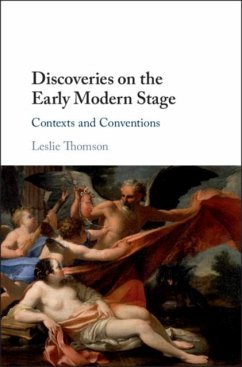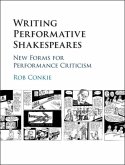This study of the action of discovery as plot device, visual motif, and thematic trope on the early modern stage considers an important and popular performance convention in its cultural and religious contexts. Through close examination of a number of 'discoveries' taken from a wide range of early modern plays, Leslie Thomson traverses several related disciplines, including theatre history, literary analysis, art history, and the history of the religious practices that would have influenced Shakespeare and his contemporaries. Taking as its primary focus the performance of disguise-discoveries and discovery scenes, the analyses include considerations of how this particular device relates to genre, plot structure, language, imagery, themes, and the manipulation of playgoer expectations. With strong reference to the visual arts, and an appendix that addresses the problem of how and where discovery scenes were performed, Thomson offers an innovative perspective on the staging and meaning of early modern drama.
Dieser Download kann aus rechtlichen Gründen nur mit Rechnungsadresse in A, B, BG, CY, CZ, D, DK, EW, E, FIN, F, GR, HR, H, IRL, I, LT, L, LR, M, NL, PL, P, R, S, SLO, SK ausgeliefert werden.









